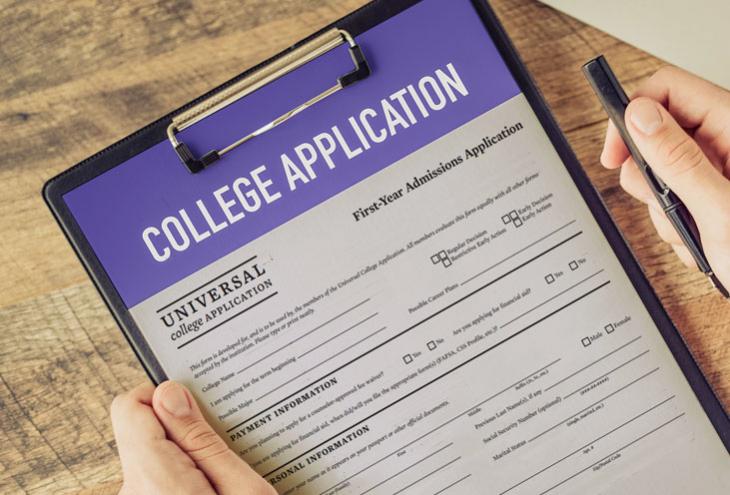Driven to Divide: Insights & Perspectives
Exploring the forces and ideas that shape our divided world.
Confessions of a College Application Junkie
Uncover the wild ride of college applications! Journey through tips, tricks, and true confessions from a self-proclaimed application junkie.
Top 5 College Application Mistakes to Avoid
Applying to college can be an overwhelming experience, and avoiding mistakes is crucial for a successful application. One of the most common blunders is not adhering to deadlines. Each college has its own application timeline, and missing these dates can lead to missed opportunities. To stay organized, create a timeline that includes all critical deadlines for applications, test scores, and supplementary materials. This simple step can help you avoid unnecessary stress and ensure your application is submitted on time.
Another significant mistake students make is neglecting to proofread their application materials. Spelling errors or grammatical mistakes can leave a negative impression on admissions officers. Your essay, in particular, should be well-crafted, showcasing your unique personality and experiences. Consider having a teacher or mentor review your work for feedback. Tools like Grammarly can also help identify language issues before you hit the submit button. Taking the time to polish your application materials can set you apart from other candidates.

How to Craft the Perfect Personal Statement
Crafting the perfect personal statement requires careful planning and reflection. Begin by brainstorming your experiences, values, and aspirations. Think about what makes you unique and how your background has shaped your perspective. To organize your thoughts, consider using a mind map or writing a simple list of key points you want to convey in your statement. A well-structured personal statement typically follows this format:
- Introduction: Capture the reader's attention.
- Body: Elaborate on your experiences and motivations.
- Conclusion: Reflect on your future goals and how the program aligns with them.
Once you have a draft, revise it thoroughly. Look for clarity, coherence, and conciseness. Ensure that your passion shines through while avoiding clichés. Also, ask trusted peers or mentors to provide feedback and proofread your work. A fresh perspective can highlight weaknesses you might overlook. Remember, your personal statement is your chance to stand out in a competitive field, so invest the necessary time and effort. For insights on common mistakes to avoid, refer to this helpful resource.
What I Wish I Knew Before Starting My College Applications
Starting the college application process can be overwhelming, and there are several lessons I wish I had learned beforehand. First and foremost, it's essential to start early. Many students underestimate the time it takes to gather necessary materials, such as recommendation letters and personal statements. By beginning the application journey sooner rather than later, you can alleviate some stress, allowing for thorough research into colleges that best fit your aspirations and needs. Organization is key; use a calendar to keep track of deadlines and required documents to ensure that nothing slips through the cracks.
Additionally, I wish I had understood the importance of tailoring my applications. Taking the time to customize your essays and highlight experiences that align with each school's values can significantly strengthen your application. I found using tailored content increased my chances of impressing admissions committees. Furthermore, seeking feedback from teachers or mentors can provide new perspectives on how to improve your application. Remember, your college application is not just a formality; it’s an opportunity to showcase who you are as a student and a person.